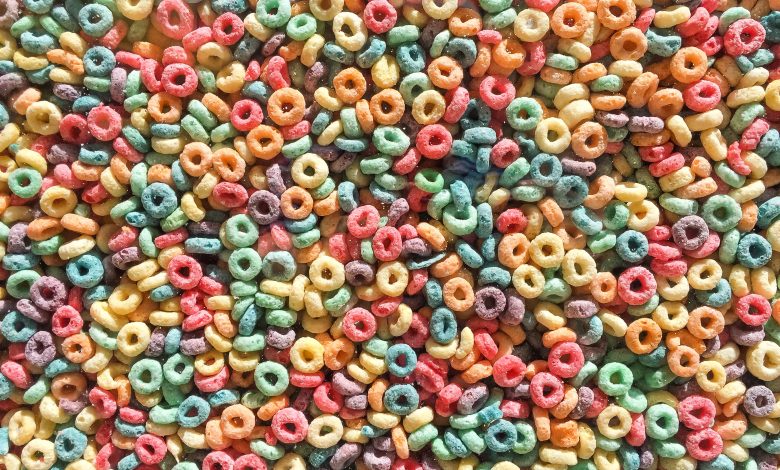
Wholesome Foods Instead of Cereal for Breakfast
Starting your day with a healthy breakfast has numerous benefits. People who eat a healthy breakfast have a lower BMI. A healthy breakfast improves diet quality. It provides us with energy and is a good source of essential nutrients, such as vitamins, minerals, fiber, and protein, that help boost memory and learning.
Many people around the world start their day by treating themselves to breakfast cereals. Breakfast cereals are marketed as healthy. We hate to burst the bubble, but many types of breakfast cereals are anything but healthy.
Here are some reasons why you should steer clear of breakfast cereals:
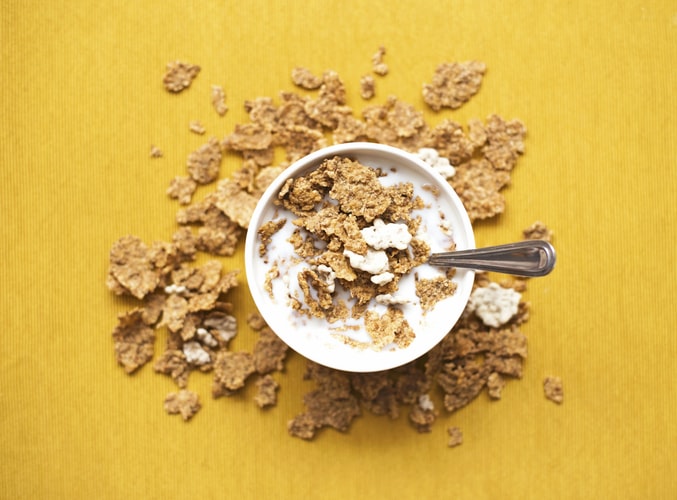
Cereal…
Is A Rich Source of Sugars and Carbs
Breakfast cereals are loaded with sugar and refined carbs that contribute to several chronic diseases. As a matter of fact, breakfast cereals are one of the most popular processed foods that are high in added sugars. Trust us when we say that starting your day with a high-sugar breakfast is the last thing you want to do. Breakfast cereal with high sugar content and rich in refined carbs will spike your blood sugar and insulin levels. After a few hours, your blood sugar will dip, causing the body to crave for another high-carb meal. This creates a vicious cycle of overeating, resulting in weight gain, eating disorders, and obesity. High consumption of sugar is also known to increase the risk of heart ailments, Type-2 diabetes, and cancer.
Takes Essential Minerals Out of Your Body
Phytic acid, a component present in the hull of all grains, including wheat, rye, rice, and oats, is known to latch on to certain essential nutrients, including potassium, calcium, zinc, and magnesium derived from different foods, preventing them from being utilized by the body. When you eat breakfast cereal, you are not just deprived of essential nutrients, you but may also lose nutrients from other foods.
Contains Synthetic Vitamins
Over-processed wheat does not contain several natural vitamins and minerals found in whole wheat. To compensate for nutrient losses, manufacturers add vitamins in synthetic form. These synthetic vitamins do not do much good to your body, which has to go into overdrive to absorb it. The end result? Most of it is expelled from the body through urine.
Can Contain Toxic Compounds
One of the most common misconceptions is that breakfast cereals are a rich source of protein and fiber. Do not let manufacturers mislead you. Most breakfast cereals boast impressive health claims; however, they do not have high-quality protein. When exposed to heat, delicate protein compounds unlock and reconnect in new ways. These new compounds can have a profound negative impact on the nervous system.
What to Eat Instead?
If you, like many other people, swear by the health benefits of breakfast cereals, the downsides of eating cereals must have come as a great shock. After all, this changes everything. Before you fall into despair, let us tell you that there are several wonder foods that contain a host of nutrients.
To supercharge your day, eat these healthy foods in the morning:
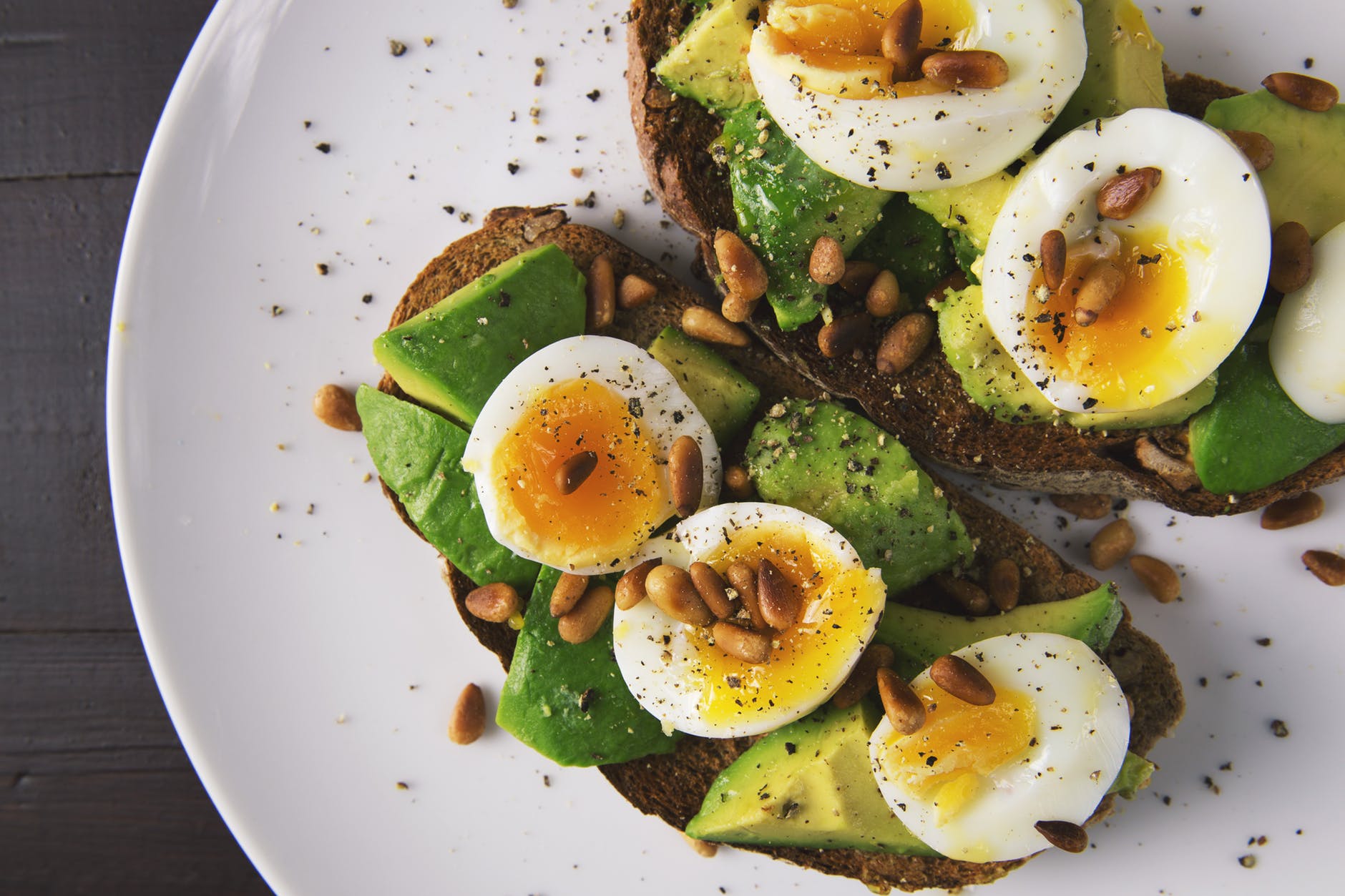
Eggs
There is a reason why people around the world start their morning with eggs. The health benefits of eggs cannot be emphasized enough. They are a nutritional powerhouse. Studies suggest that eggs boost metabolic activity, promoting a feeling of fullness.
Additionally, when incorporated in a low-calorie diet, eggs can support weight loss, as they are low in calories. Eating eggs in the morning can help reduce your calorie intake in the next meal and are known to help the body maintain steady sugar and insulin levels.
Egg yolk is a rich source of antioxidants, including zeaxanthin and lutein, that are known to help prevent eye disorders such as cataract and macular degeneration. Eggs are a rich source of choline, a nutrient known to help the brain and liver perform their functions. Studies suggest that eggs may help reduce the risk of heart disease by increasing good HDL cholesterol. Just three eggs provide 20 grams of high-quality protein.
Chia Seeds
Chia seeds are high in a range of nutrients. They are a rich source of fiber. A part of the fiber found in chia seeds is viscous fiber, which absorbs water, helping improve the movement of food through your digestive tract. This causes you to feel full and satisfied for a longer time. In a study involving people with diabetes, participants who ate chia seeds reported feeling full. Researchers also observed an improvement in their blood pressure and blood sugar.
Chia seeds are a rich source of antioxidants, substances that are known to protect cells against free radicals. In another study, people with diabetes were asked to eat chia seeds regularly. After a few days, researchers observed a decline in their inflammatory marker CRP, a major risk factor for heart disease, by 40 percent.
Berries
Berries are low in calories but high in nutrients. Some of the most popular varieties of berries include blueberries, strawberries, blackberries, and raspberries. Berries are lower in sugar than most fruits. A cup of some varieties of berries may contain as low as 50-85 calories. Berries are a rich source of fiber and antioxidants, particularly anthocyanins that help reduce the risk of heart diseases and may also slow aging. Various studies have found that berries may prevent blood cholesterol from oxidizing and help maintain the health of cells lining the blood vessels.
Greek Yogurt
For all you fans of Greek yogurt out there, we have got news that will be music to your ears. Your favorite food is not just creamy and delicious, but also nourishing. Greek yogurt is more concentrated in protein. It is known to promote satiety. Protein also has a high thermic effect (the rise in metabolic rate) than other nutrients such as carbs and fats. Because Greek yogurt is incredibly filling, it can help with weight loss. Certain types of Greek yogurt contain probiotics such as Bifidobacteria, a bacteria that is known to improve gut health. Full fat yogurt is a rich source of conjugated linoleic acid, a natural fatty acid that is famed for its ability to decrease the risk of breast cancer.
Flaxseeds
Flaxseeds are a rich source of viscous fiber that promotes satiety. They are also known to improve insulin sensitivity, help reduce the risk of breast cancer, and control blood sugar levels. Because whole flaxseeds are not absorbed by the body, it is highly recommended that you include ground flaxseeds in your diet.
Sunflower, Sesame, and Pumpkin Seeds
Sunflower, sesame, and pumpkin seeds taste great with smoothies, puddings, and baked items. Just an ounce of these miracle foods can contain up to ten grams of protein. These seeds are also a rich source of essential nutrients, including zinc, iron, calcium, and magnesium. They contain soluble fiber, which can help lower bad cholesterol and increase good cholesterol. Protein and fiber come together to prevent a blood sugar spike.
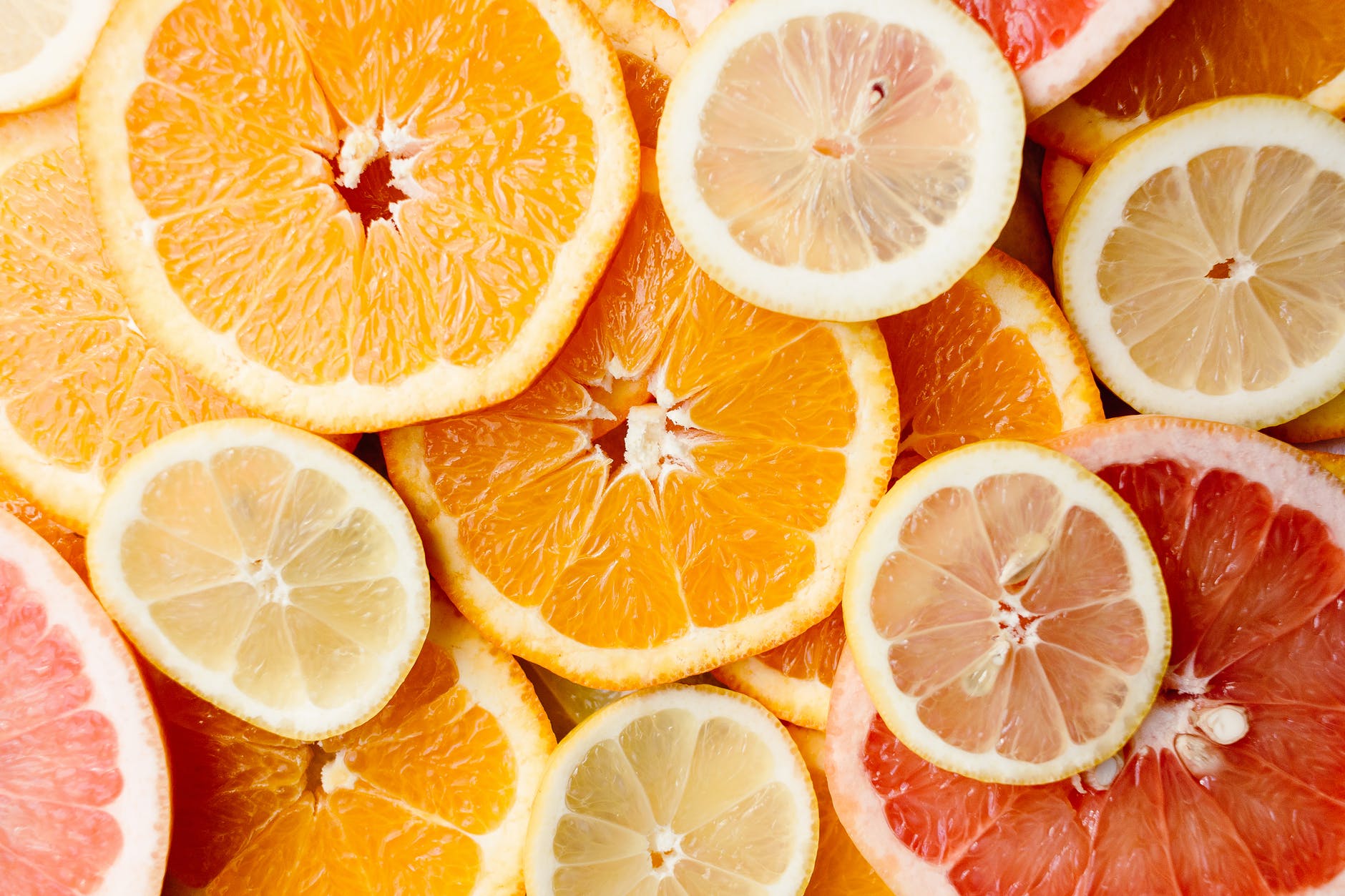
Fruits
Almost all types of fruits are rich in essential nutrients such as fiber, vitamins, and potassium. They are also low in calories. A bowl of chopped fruits provides 80-130 calories (and the best part is that these are not empty calories). Thanks to the high fiber and water content of fruits, they are very filling. To get your daily dose of vitamin C, include citrus fruits such as orange in your diet. Remember to eat an avocado every morning. The miracle fruit is a rich source of monosaturated fats, which are associated with several health benefits, such as reduced belly fat, low LDL cholesterol, and improved cardiac health. For a well-balanced diet, pair fruits with eggs, Greek yogurt, cheese, or cottage cheese.
Cottage Cheese
Cottage cheese is packed with the goodness of protein. Including cottage cheese in your diet can result in several health benefits, such as increased metabolism and a decrease in the level of the hunger hormone, ghrelin. Studies show that cottage cheese may be as filling as eggs. A cup of cottage cheese provides 25 grams of protein. Full-fat cottage cheese is a rich source of conjugated linoleic acid, which is known to promote weight loss.
Nuts
Nuts are tasty, crunchy, and nutritious. Known to promote fullness, nuts can help prevent weight gain. Though nuts are high in calories, the body does not absorb all the fat. Nuts can reduce the risk of heart disease and are known to help the body fight inflammation. Nuts can also help reduce insulin resistance. They are a rich source of several essential nutrients, including potassium and magnesium, and contain monosaturated fats. Nuts also have health benefits for diabetics. In a study involving people with diabetes, respondents were asked to replace a portion of carbs with two ounces of nuts. After a few days, researchers observed a reduction in blood sugar and cholesterol levels in the blood of the participants. Brazil nuts are a rich source of selenium, which has various health benefits, including reduced risk of certain cancers, improved heart and thyroid health, and reduced asthma symptoms. Selenium is also known to boost the immune system.
Coffee
Coffee is one of the most well-known natural sources of caffeine, which is shown to have many health benefits. Caffeine, if taken in moderated amounts, can improve mental alertness, mood, and focus. To effectively use caffeine to boost your productivity, while steering clear of the side effects, do not consume more than four cups of coffee (roughly 400 mg of caffeine) in a day. Coffee is a rich source of antioxidants that are known to protect the cells lining the blood vessels, reduce inflammation, and decrease the risk of diabetes and liver disease. Caffeine can also help you achieve your weight loss goals by supercharging your metabolism. In a study, participants who consumed 100 mg of caffeine every day were able to burn an extra 79-150 calories after 24 hours.
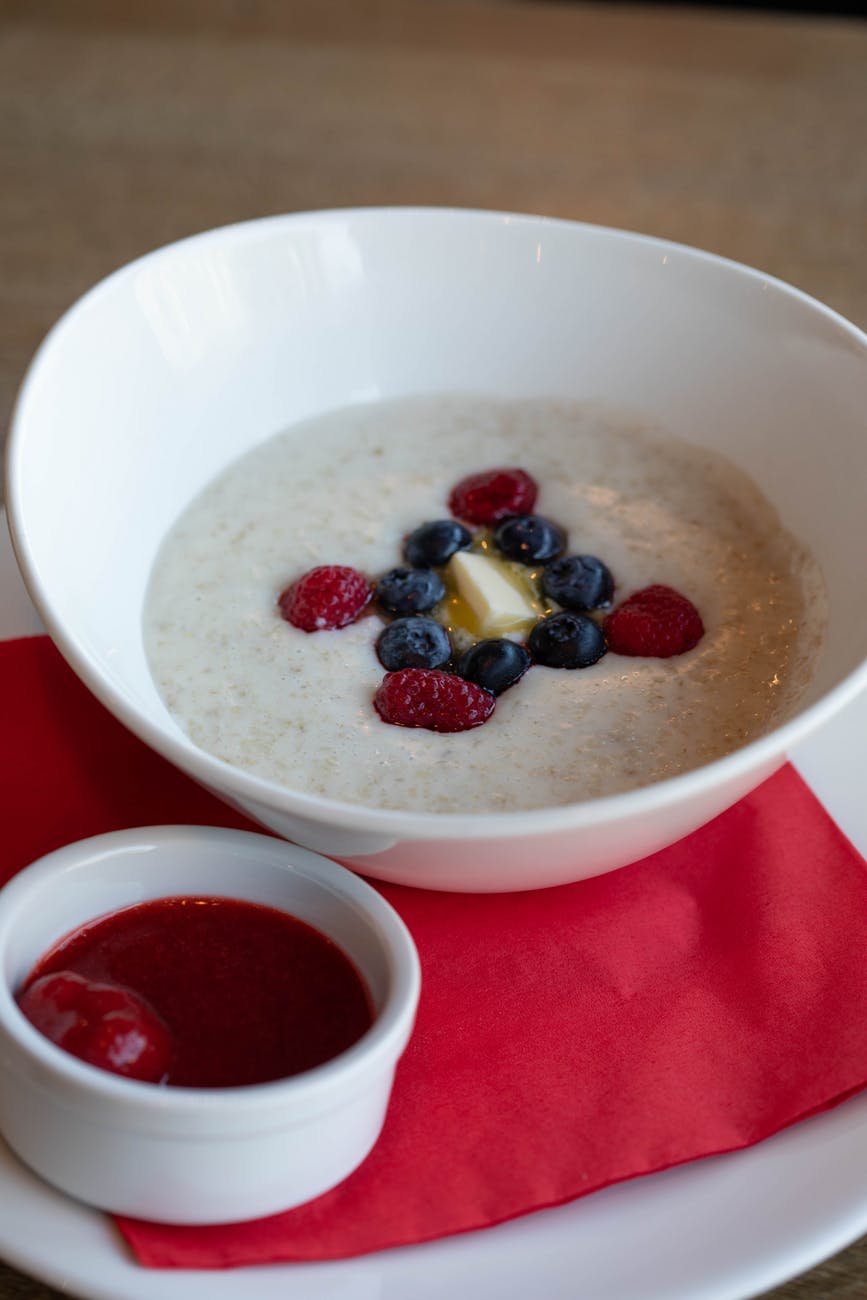
Oatmeal
Oatmeal is made from ground oats, which are a rich source of oat beta-glucans, a water-soluble beta-glucans. Oat beta-glucan has numerous health benefits, such as helping lower cholesterol and potentially reducing the risk of cardiovascular diseases. Because of these benefits, oat beta-glucans have been assigned a qualified claim by both the US FDA and the European Food Safety Authority. The viscous fiber is known for boosting feelings of fullness. Oats are a rich source of antioxidants that are known to offer substantial health benefits, such as reduced blood pressure and improved cardiac health. Because oats and gluten-containing grains are often processed in the same facility, most oats are contaminated with other grains (mostly barley). To avoid the side effects of gluten oats, people with celiac disease or gluten sensitivity must look for certified gluten-free oats. One cup of cooked oatmeal provides just about six grams of protein. If you want to stick to an oatmeal breakfast, you’d want to prepare it with milk rather than water. Alternatively, you can serve it with a side of egg or cheese to maximize your protein intake.
Protein Shake
Protein shakes can be prepared with different types of protein powder, such as whey, egg, pea protein, and soy. Studies have shown that whey is absorbed most quickly by the body. Whey is an excellent source of high-quality protein. It provides numerous health benefits. It is known to promote muscle growth and may help lower blood pressure and inflammation. Whey protein promotes satiety and may help with weight loss. In a study that compared four high-protein meals, whey protein meal was found to be the most filling. Researchers observed that participants who ate a whey protein meal consumed fewer calories at the next meal. Whey protein can also help maintain blood sugar levels and prevent muscle loss during aging and weight loss.
Green Tea
Green tea is one of the healthiest beverages known to man. It is a rich source of caffeine (35-70 mg per cup), which is known to help improve mood and attention span and boost metabolism. Green tea contains an antioxidant known as EGCG, which may protect the brain, the heart, and the nervous system against certain types of damages. It may also be helpful against diabetes. A review of studies links green tea consumption with a reduction in blood sugar and insulin levels.
Pita Bread
Wholemeal pita bread offers several health benefits. They are low in calories. Pita bread is a rich source of protein and fiber, which helps maintain blood sugar and promote intestinal health. They also contain vitamin-B, selenium, and manganese that work together as antioxidants.
Sweet Potatoes
A medium-sized sweet potato can provide up to 400 percent of vitamin A required by the body every day. The orange flesh of sweet potatoes is a rich source of beta-carotene, a plant pigment famed for its ability to boost immunity. A single sweet potato can provide up to 15 percent of an average human’s recommended daily fiber intake, helping lower bad cholesterol levels. To reduce your calorie intake, replace your regular bread, muffin, or bagel with sweet potato.
Part-Skim Cheese
Did you know that just a single piece of part-skim mozzarella can provide 8 grams of protein? That’s the same as an egg! A half-cup of low-sodium cottage cheese can provide up to 20 grams of protein. These dairy products are also a rich source of essential nutrients such as magnesium, calcium, and potassium that are known to help the body function optimally by reducing bloat and blood pressure. If you just want to add flavor to your food, and do not intend to use cheese as the main source of protein, use 1/4 cup of the dairy product.
Nut Butter
Nut butter is a storehouse of nutrients, protein, vitamins E and B6, folic acid magnesium, copper, zinc, niacin, and potassium. It is also a rich source of unsaturated fats that are known to improve cardiac health and fiber. Protein and fiber found in nut butter boost feelings of fullness and can help you maintain a healthy weight (and even help you lose weight). Nuts contain beneficial substances such as phenols and polyphenols that are able to act as antioxidants. These substances come together to protect the cells. Nut butter may even help prevent colon cancer. Almond butter is a rich source of vitamin B7 or biotin, which helps the body process sugar, protein, and fat from foods that you eat. To maximize the health benefits of nut butter, look for butter that utilizes only nuts.
100 Percent Whole-Grain Toast
Whole grains are a rich source of antioxidants that are known to protect our tissues from serious damage and inflammation. They also contain essential nutrients, including potassium, minerals, zinc, iron, and magnesium. These nutrients are known to improve cardiac health. Whole grains are a rich source of B vitamins that help the body convert food into energy.
Kefir
Technically a grain, kefir is commercially prepared by mixing it with cow’s or goat’s milk. Kefir is high in various nutrients, including protein, vitamin B12, calcium, Riboflavin, magnesium and phosphorus, and probiotics. Many experts consider it to be a healthier alternative to yogurt. Kefir is known for its antibacterial properties. It can improve bone health and provide protection against certain types of cancer. Studies suggest that it may also help improve asthma and allergy symptoms.



